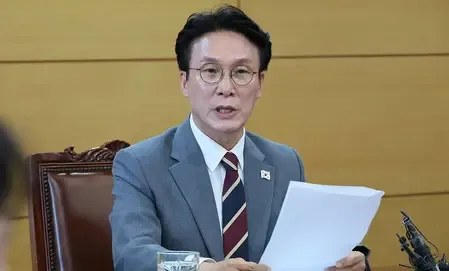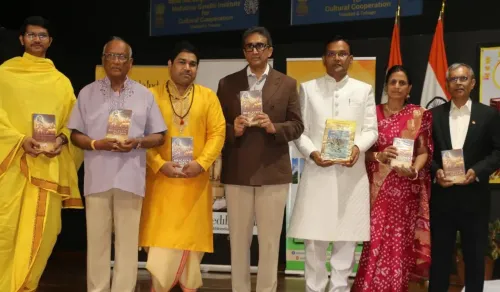What Does Bhupender Yadav's Arrival in Brazil Mean for Climate Action?

Synopsis
Key Takeaways
- India's commitment to climate adaptation and finance.
- Significance of the Rio Summit legacy.
- India's impressive emissions reduction efforts.
- Brazil's role in facilitating global climate discussions.
- Launch of the Tropical Forests Forever Facility.
Brasilia, Nov 17 (NationPress) Union Minister for Environment, Forest and Climate Change, Bhupender Yadav, has touched down in Belem, Brazil, to engage in the 30th Conference of Parties (CoP30) under the UN Framework Convention on Climate Change (UNFCCC). He is set to articulate India's perspective on Adaptation, Climate Finance, and several pivotal topics.
“Just arrived in Belem, Brazil, where I’ll be actively involved in the UNFCCC COP30. In the coming days, I will be participating in important climate negotiations, presenting India's stance on matters related to Adaptation, Climate Finance, and other significant issues. I anticipate fruitful discussions,” Yadav announced on X on Monday.
Hosted by the Government of Brazil, UNFCCC COP 30 is taking place from November 10–21, aiming to build on past achievements and set the stage for future commitments to effectively address the global climate crisis.
On November 7, India's Ambassador to Brazil, Dinesh Bhatia, articulated India’s National Statement at the Leaders’ Summit of CoP30, reaffirming the nation’s unwavering dedication to climate action grounded in equity, national circumstances, and the principles of Common but Differentiated Responsibilities and Respective Capabilities (CBDR-RC).
India expressed gratitude to Brazil for hosting CoP30 on the 10th anniversary of the Paris Agreement and acknowledged the rich legacy of the Rio Summit spanning 33 years.
India's Ministry of Environment, Forest and Climate Change emphasized that this conference is a chance to evaluate the global response to the threat of climate change. It also serves as a moment to honor the legacy of the Rio Summit, where the principles of Equity and CBDR-RC were established, forming the bedrock of the international climate framework, including the Paris Agreement.
India welcomed Brazil’s launch of the Tropical Forests Forever Facility (TFFF), recognizing it as a critical step towards global cooperation for the conservation of tropical forests, and has joined the Facility as an Observer.
Under the guidance of Prime Minister Narendra Modi, India has highlighted its commitment to a low-carbon development trajectory. Between 2005 and 2020, the country achieved a 36% reduction in the emission intensity of its GDP, a trend that remains ongoing.
Furthermore, it was noted that non-fossil fuel sources now represent over 50% of India’s total installed energy capacity, allowing the nation to meet its revised Nationally Determined Contributions (NDC) target five years ahead of schedule.









